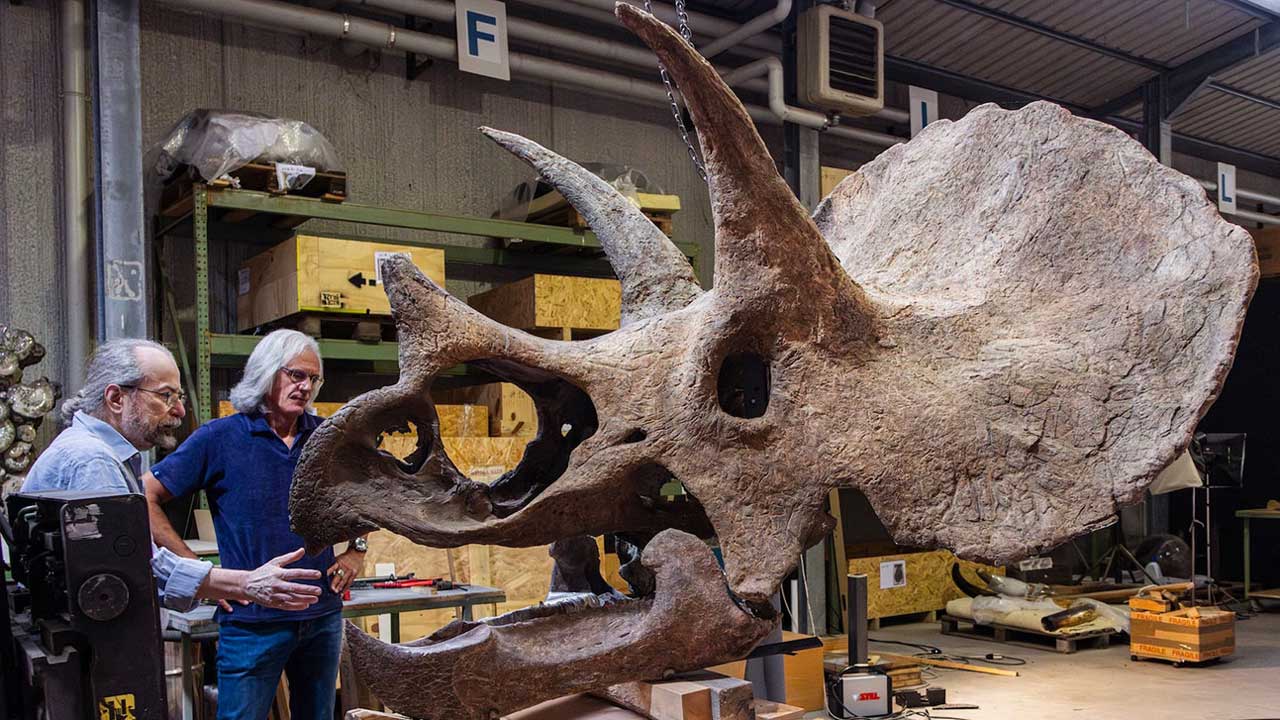"I don't think she liked my music at all – which is why we bonded": What happened when Joe Bonamassa and Joanne Shaw Taylor were interviewed together for the first time
Up for discussion: AI, internet trolls, crap journalists, dead birds, sausage dogs, nerd pyjamas and music execs who need a punch in the face
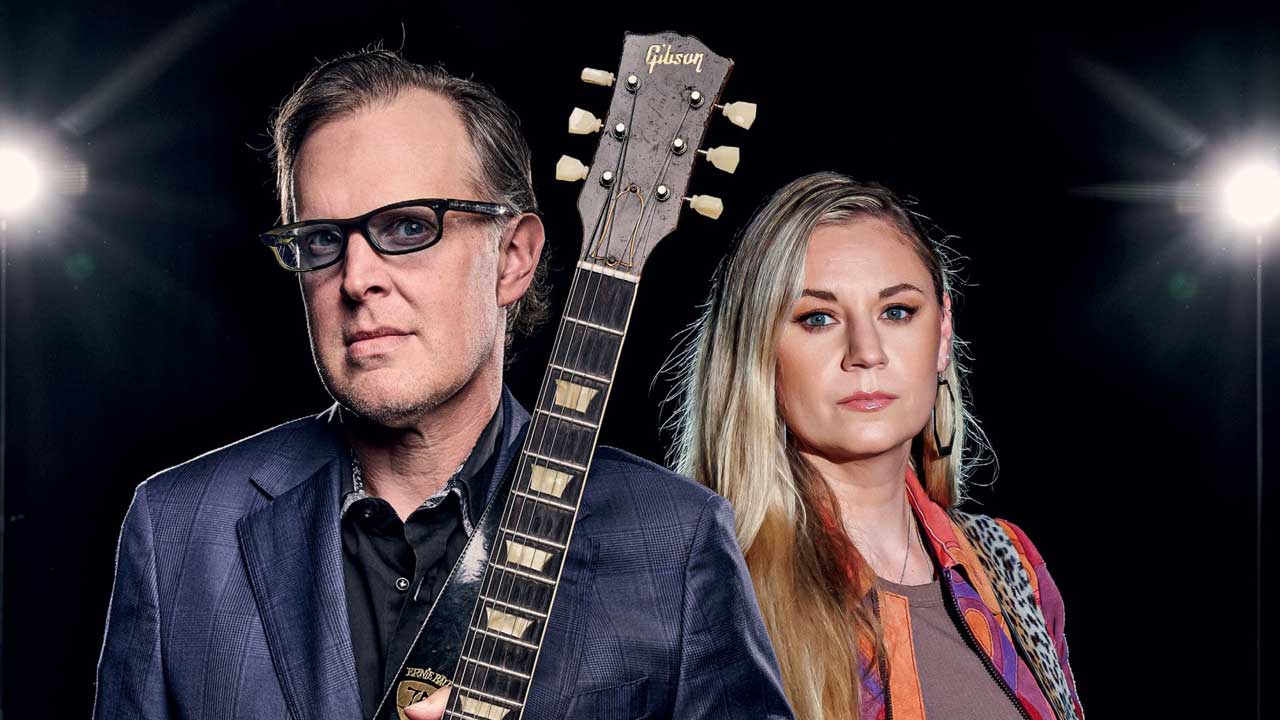
Forget the rocketing sales and ever-bigger venues. For rock writers, the real joy of Joe Bonamassa and Joanne Shaw Taylor’s respective success stories has been watching these two modern blues figureheads grow as interviewees.
Rewind to the millennium, when Bonamassa arrived with A New Day Yesterday, and the New Yorker was the epitome of the guitar geek caught in the headlights: comfortable enough talking about pickups and string gauges, cagey on anything else. Likewise, while promoting her 2009 debut album White Sugar, Taylor hinted at a snarky Black Country wit, but stopped short of showing her cards or character.
How long ago that seems now. Today he’s on the talk circuit for his 17th album, Breakthrough (while she’s flogging number 10, Black & Gold), and the pair have a reputation as the smartest, wittiest voices on a blues scene sometimes characterised as dour and overly reverential.
Get these longtime friends together on a Zoom call, meanwhile – Taylor dialling in from her adopted Nashville hometown, Bonamassa from Copenhagen, smoking a cigar thicker than a toddler’s arm – and they’re even more fun, finishing each other’s sentences, mercilessly taking the piss, and showing occasional flashes of genuine tenderness.

Now that’s what you call a cigar, Joe.
JST: He’s in Tony Soprano mode.
JB: This is a 15 Robusto. Sorry I’m late joining the call. I was testing out the rig for the Black Country Communion tour.
Sign up below to get the latest from Classic Rock, plus exclusive special offers, direct to your inbox!
You’re great friends now , but what do you remember about your first meeting?
JB: It was at the Notodden Blues Festival in 2008. Which is amazing, but what it’s telling me is that time is fucking flying. We ran into each other at the hotel check-in.
JST: And I offended you. Because you wanted to show me your really nice old Les Paul, and I just said: “I don’t like Les Pauls” and walked off.
JB: And I said: “Ah, she’s cool”. Matter of fact I don’t think she liked my music at all – which is why we bonded.
JST: [Deadpan] There are some covers you’ve done that I think were well-chosen.
JB: We became fast friends, kept in touch. The next time we saw each other was in New York.
JST: We stayed up all night talking. You were the first person I’d met who had started at the same age. We weren’t exactly child stars – we weren’t Macaulay Culkin. But it was kind of weird to have your parents driving you up the motorway to gigs, aged thirteen, skipping days of school. So we had a lot to talk about. The next day, I got stranded in New Jersey and we just hung out until you finally got sick of me and shipped me off to Memphis.
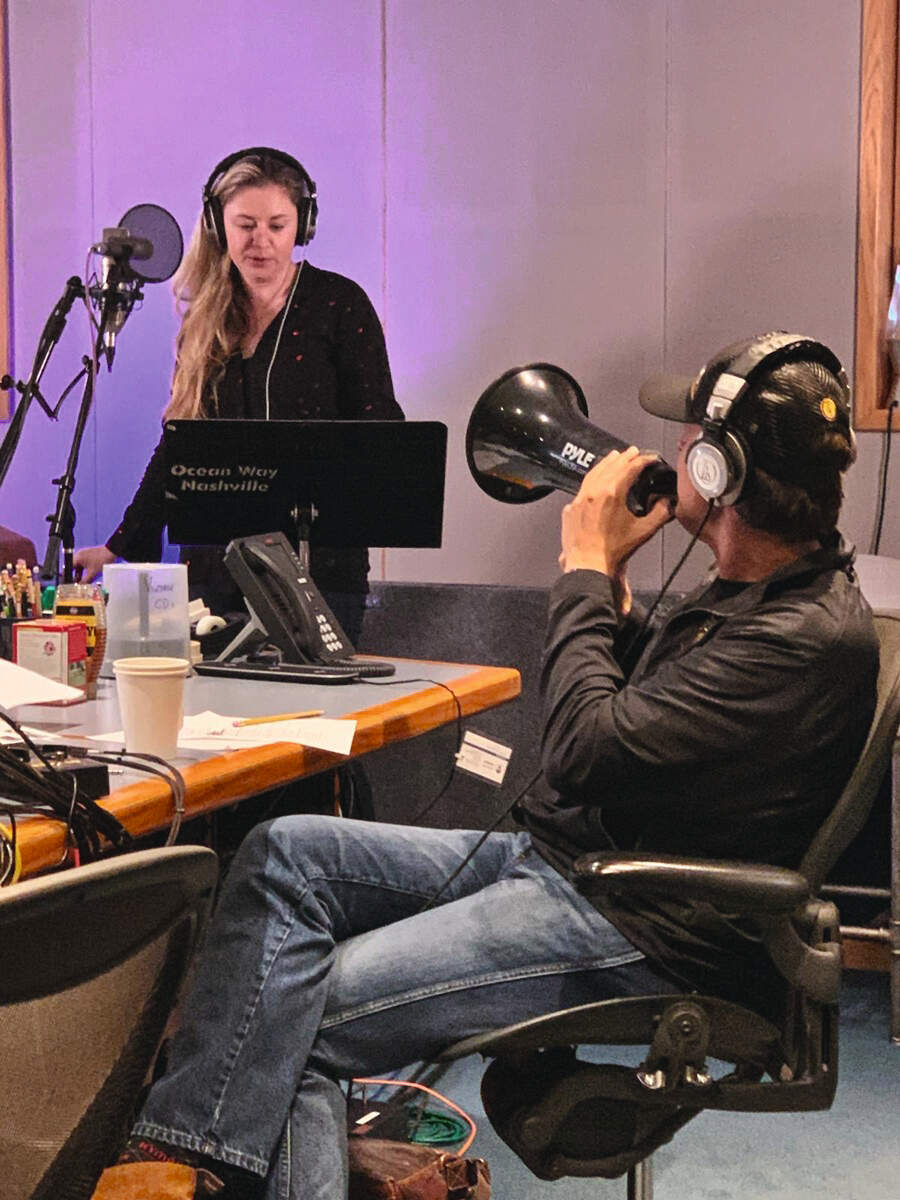
What other early memories come to mind?
JST: Shortly after that time in New York, I had to drive myself from Maine to Detroit. So I started off on this twelve-hour drive, in the pitch-black, on the wrong side of the road. But Joe would phone and keep me company. I didn’t have any money. And you’d say: “Okay, I’ve booked you into a nice Marriott, get a good night’s sleep. Don’t pull into some dodgy shithole.”
JB: I just want to correct one thing you said: “I was driving from Detroit on the wrong side of the road”. No, it’s the correct side of the road. You guys just don’t get it.
JST: No, I meant I was literally driving on the left side. I could see headlights coming towards me.
JB: Oh shit. Well, then you were on the wrong side. I thought you were just digging on us.
Why do you think you clicked?
JB: We share a dry, cutting sense of humour. Joanne loves it when I go off, ranting and raving.
JST: And I poke the bear. There’s also massive trust between us. That was a real benefit when Joe started producing me. We recorded Fade Away, which is about losing my mum, and he’s one of the few people – because she passed away a long time ago – who’s actually met her.
JB: When I met Joanne, my life had just changed. I’d played the Albert Hall for the first time. Next thing you know, there’s more people waiting for a meet ’n’ greet than were at the shows two years before. Things had got weird. I don’t believe I handled the pressure very well. And Joanne got me through a lot of that.
What’s the best night out you’ve had together?
JST: The thing is, if we meet for dinner we meet at four p.m. You know, the early-bird special. So our late-night drinking is: “Oh god, it’s eight p.m., we should call it a night”. With us it’s mostly cigar bars. I used to be a heavy cigarette smoker, and I’ve turned the corner and can’t imagine why I ever used to do it.
But now I’ve started on the little cigars, because me and Joe went out and he was just rambling on, so at some point I thought: “Oh god, I’m going to have to start smoking, just so I’ve got something to entertain me for the next few hours”.
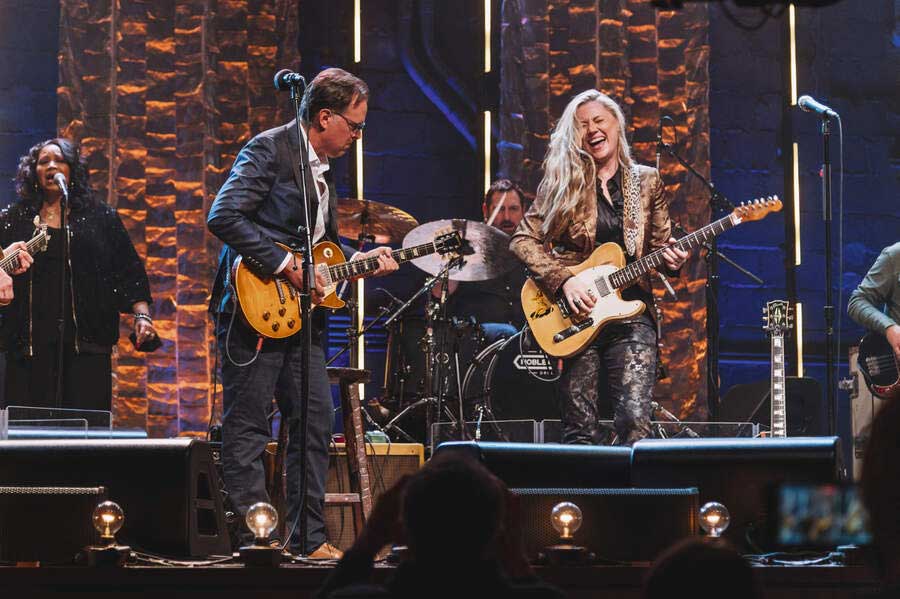
In your careers, do you remember a moment when it felt like the boulder was starting to roll?
JB: My big moment was when I played that Albert Hall show, four days before my thirty-second birthday. What I learnt from that experience is, you never know what is going to change your life until it does. And when it does, look out. Because it happens fast.
You’ve got to understand that you don’t get to pick when it happens. Most people who have dedicated their lives to this horrible fucking business, when they get to twenty-seven and they’ve got nothing to show for it but eight hundred dollars of bills, they say to themselves: “If I don’t make it by the time I’m thirty I’m gonna go do something else”, right? But if I’d quit at thirty I would have been literally one year, eleven months and twenty-six days from achieving this whole lifetime of work.
JST: I think I’ve had lots of smaller boulders. And fortunately my boulder still seems to be getting bigger by increments. So there’s been things like playing at the Diamond Jubilee and starting to work with Joe and Roy [Weisman, manager], which was always my dream.
JB: I always say that every avalanche starts with one snowball and then it cascades. You gotta stay in the game, take little victories. Like, every time Joanne goes into a market, she draws more people. There’s growth. She’s playing the right rooms, legitimate theatres. And going out there with a great bag of songs and a killer live show. To me, that’s a big win.
JST: Women tend to make it later – Bonnie Raitt, y’know?
JB: Or Sheryl Crow. And you’re not selling a gimmick. Even though you’re a beautiful woman, Joanne…
JST: Finally. Seventeen years it took.
JB: …but you’re not overtly selling the sexual element. You’re selling the art. And that’s what Bonnie Raitt did. That’s what Lucinda did. That’s what Sheryl did. And all these super-talented artists who were, like: “I don’t want to get there on a gimmick or a picture”.
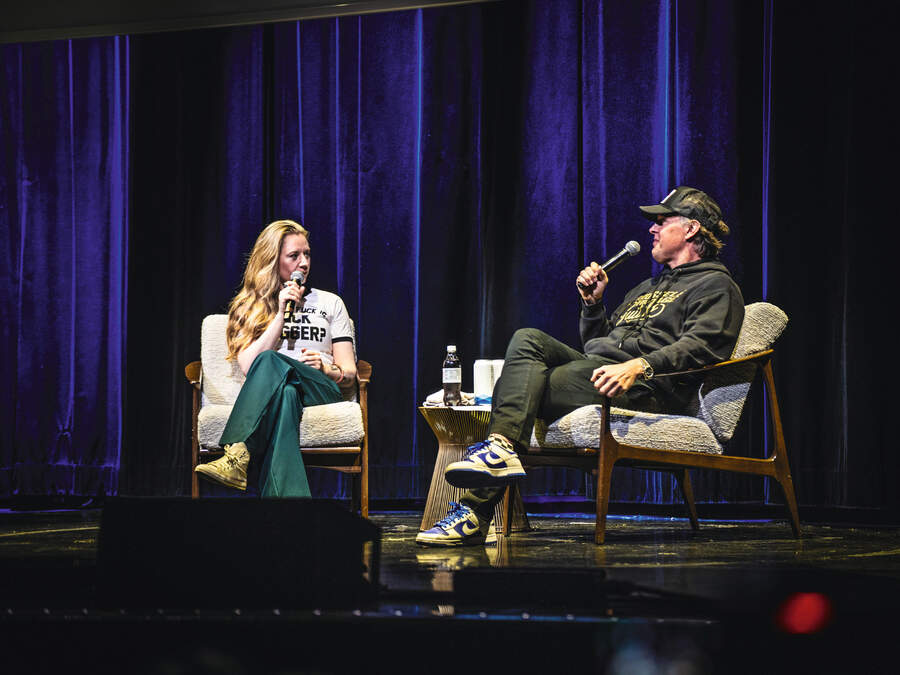
Has the internet made people better or worse at playing guitar?
JST: Well, I think it’s made them worse people.
JB: The internet gives out information, some bad, but mostly good. So kids can sit there at their leisure and get a lot better at a younger age than we did. Where the internet goes wrong is when it gets into ‘Who’s better?’
Like, there’s a video circulating of Eric Gales and I. We’ve been friends thirty years, and we both know that every time we get on stage together we’re gonna give each other a black eye and a bloody nose. But of course it gets filmed and analysed: “Who’s better?” What they don’t understand is that [being a great live act] is so much more than just playing.
I watched Buddy Guy at Montreux. He comes out with his intro music, the band’s hot. He didn’t have to do a fucking thing, except look at the audience and smile – and he had ’em in the palm of his hand. Until they can do that, people [on the internet] can shut the fuck up. Enjoy it or don’t. If you don’t like it, turn it off. Why sit there and argue?
JST: I think it’s taken a lot of the fun out of it. I got the internet when I was, like, sixteen. So during the three years of hardcore studying before that, I had to cycle ten miles into Birmingham to Our Price and say: “I like this BB King album, what else have you got?” And they’d go: “Well, there’s a Buddy Guy greatest hits we can order for you.”
So I’d cycle back in six weeks, then cherry-pick the bits I could learn. Whereas kids now are like: “I’m into Eric Johnson – and here’s every single performance he’s ever done in his lifetime, and all the videos of Eric teaching you how he did it”. It’s almost too much information. You don’t get to put your own personality into it.
How about AI-generated music? It feels like the antithesis of everything blues is all about.
JST: Somebody said: “I want AI to do my cleaning and washing so I can focus on art, not AI to do my art so I’ve got more time to do my washing.” It’s great we have that technology in terms of healthcare. But I don’t want an artificial Van Gogh.
JB: I think people can see through an AI-derived song. Y’know, someone’s coming up with lyrics like Blonde On Blonde, and you’re like: “Well he either read Kerouac or he used ChatGPT”.
Do you worry about the day when titans like Buddy Guy leave us and you’re asked to step up?
JB: Who stepped up to replace Hendrix? Nobody. Who stepped up to replace BB King? Nobody.
JST: And the beautiful thing is they’re still there. There’s so many albums and bootlegs we can still hear. A good example is Stevie Ray Vaughan. He’s the reason I went down this road. I’ve never met the guy, he was gone by the time I discovered him. But he’s still giving so much to the genre.
JB: Every ten years, someone comes along. Just when the media says: “Is the blues dead?” – boom. Robert Cray in the eighties. Gary Moore in 1990. Kenny Wayne Shepherd. Jonny Lang. Gary Clark Jr. Kingfish. Marcus King. Every five to ten years, you get a new crop doing something different under the blues umbrella. It’ll never die, it’ll just sound different.
Presumably you’ll be checking out each other’s new albums?
JST: Well he’s on mine. Even if he went mad and put out the worst album of his life, I honestly would still think it’s the greatest thing he’s ever done, and I would champion it – and I will beat the crap out of anyone who says otherwise.
JB: Well thank you. And likewise. Hopefully you and I haven’t put out our worst albums ever. The best review I ever read was that prog supergroup GTR. Not that I care what Rolling Stone has to say about anything, but the review was just “TTL SHT”. That was it. But it was a good record.
JST: I like the weird reviews. I had one for The Dirty Truth [2014]. Every paragraph, the reviewer would go back to saying: “But at the end of the day, she can’t make decent blues music when her father is Shaw Taylor”. Joe, you might not get that reference. Shaw Taylor was a TV presenter in the seventies. I’ve never met the man, but this journalist just assumed he was my father and kept saying: “It’s a great album – but she’s grown up rich”.
Has your surname helped or hindered you, Joe?
JB: My favourite question in the world has always been: “Is Bonamassa your real last name?” And my answer is: “No, my name is actually Joe Smith. But I figured the music business is so easy that I’d change my name to something that’s harder to pronounce and spell, just to make things fun and even the playing field”.
Aside from music, what else do you share?
JST: Two years ago, me and Joe got a little sausage dog called Hank. Joe is a massive dog fan, so I’ve gifted him a dog that he doesn’t have any responsibility for. He loves his uncle Joseph. But his uncle Joseph is a bit of a shit, because I give him dog food and Joe will give him an eighty dollar kobe beef steak.
What sort of exchanges do you have between you in a typical day?
JST: The problem for Joe is I’m a very passionate person. And if I meet someone who’s a horrible person in this industry, they are immediately on the ‘punch in the face’ list. And Joe just has to go along with it. So he gets a list from me: “Guess who’s on the shit-list today!”
JB: It’s like a briefing memo from MI5, the currently disavowed.
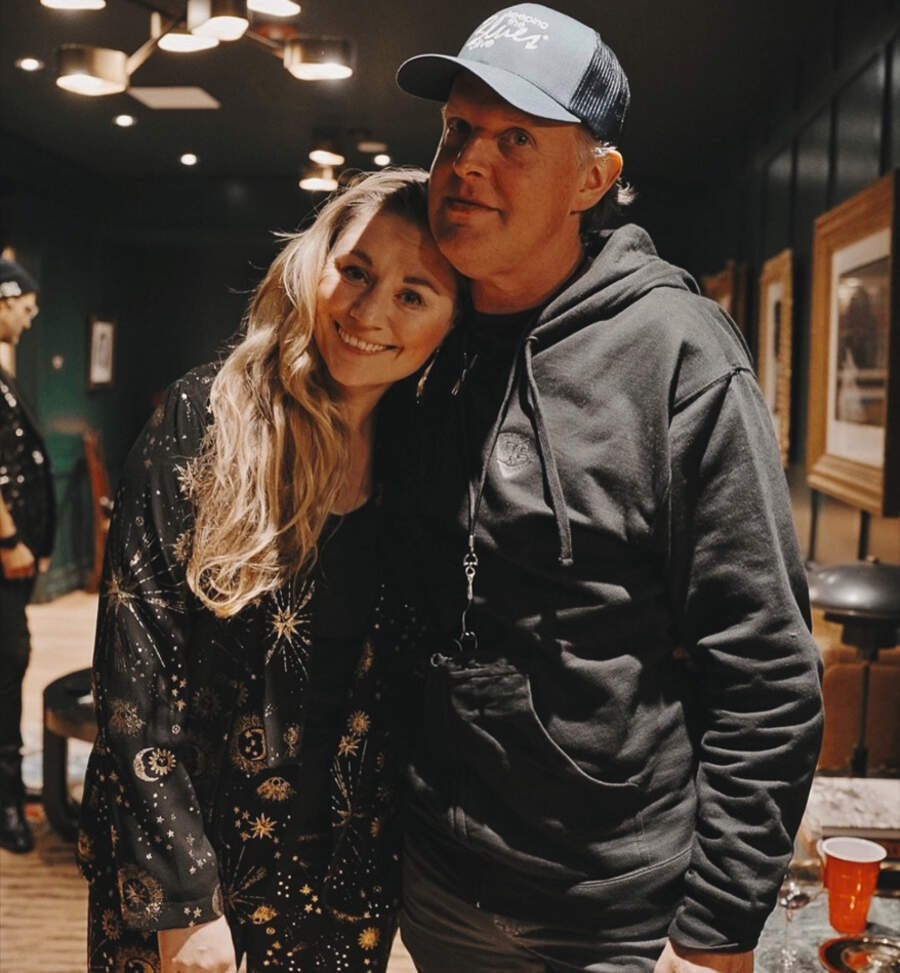
There’s a lingering suspicion that you two might secretly be a couple.
JST: We are basically married. Just without any of the fun stuff.
JB: Or the alimony.
JST: We live next-door to each other in Nashville. After this interview is done I’m walking to his apartment, because I noticed there’s a dead bird on his patio. So that’s our day-to-day life: taking care of shitty things for each other.
JB: Joanne, be a dear, set the air conditioning for seventy-two degrees.
JST: My problem is that Hank goes apeshit if someone next-door has the audacity to sneeze. So I can’t do interviews at home, so I go round to his. But then I’ve got to remember if the wifi password is ‘Gibson1959’ or ‘1959Gibson’.
JB: It’s on a little laminated plaque over the sink. By the good wine.
JST: If it was by the good wine, I might be round there more. You might be disappointed when you get home. Also, why are there thirty apple-flavoured vodkas in your freezer? Have you started making appletinis when you’re at home in your Nerdville pyjamas, you little weirdo?
This has been fun. Was it the first joint interview you’ve done?
JB: Yeah. I can’t believe we’ve never done anything like this before.
JST: It’s easier, actually.
JB: I’ve had, like, five interviews already today. Five! And it’s just these mundane questions: “What was it like playing with BB King?” And I’m like: “What do you think it was like?”
JST: So many journalists just repeat the press bio to you.
JB: And they want to do Zoom calls on camera. But then they ask these questions where thirty minutes seems like three hours. You gotta understand how this works. If you’re gonna ask questions like that, I’m gonna give you canned answers. But at least if we do it on the phone then I can doom-scroll my Twitter at the same time.
Henry Yates has been a freelance journalist since 2002 and written about music for titles including The Guardian, The Telegraph, NME, Classic Rock, Guitarist, Total Guitar and Metal Hammer. He is the author of Walter Trout's official biography, Rescued From Reality, a music pundit on Times Radio and BBC TV, and an interviewer who has spoken to Brian May, Jimmy Page, Ozzy Osbourne, Ronnie Wood, Dave Grohl, Marilyn Manson, Kiefer Sutherland and many more.
You must confirm your public display name before commenting
Please logout and then login again, you will then be prompted to enter your display name.


